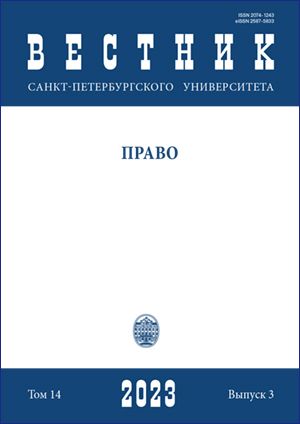Taxation of digital services in BRICS countries: A comparative analysis
DOI:
https://doi.org/10.21638/spbu14.2023.315Abstract
The need to ensure compliance with the fiscal interests of the state in the conditions of the emerging digital economy requires the transformation of essential approaches to the regulatory regulation of tax relations both in the context of determining the appropriate legal forms for regulating the national tax base. These tasks remain relevant even in the current conditions of sanctions restrictions. In the absence of consensus on tax projects of international organizations, many countries have begun to introduce digital taxes unilaterally. National digital taxes can be divided into three groups: income taxes, VAT for electronic services and hybrid taxes. These national digital taxes are considered on the examples of individual BRICS countries. The article examines the experience of Brazil as a state where discussions are actively underway about the need to introduce a digital tax and a number of tax bills have been developed in this area, India as a country that uses interesting and rather unconventional methods of taxation of digital companies, as well as China and South Africa as countries that use VAT for electronic services. Based on a comparative legal analysis of the legislation of the BRICS states, in which digital taxes have been introduced, possible scenarios for the development of tax regulation in Russia have been developed. It is concluded that the introduction of a digital tax in Russia is not appropriate. The methodological basis of the research consists of both general scientific methods (dialectical-materialistic, systemic, induction, deduction, analysis, synthesis) and interdisciplinary, as well as legal research methods proper. When conducting the research, it is planned to use proper legal methods and approaches: formal-legal and comparative-legal. The study is based on a comparative legal method that allows comparing similar legal problems existing in legislation and international treaties, as well as identifying optimal ways to resolve them.
Keywords:
сorporate taxation, international taxation, digital transformation, BRICS countries, comparative law, value-added tax, digital services tax
Downloads
References
Downloads
Published
How to Cite
Issue
Section
License
Articles of "Vestnik of Saint Petersburg University. Law" are open access distributed under the terms of the License Agreement with Saint Petersburg State University, which permits to the authors unrestricted distribution and self-archiving free of charge.






